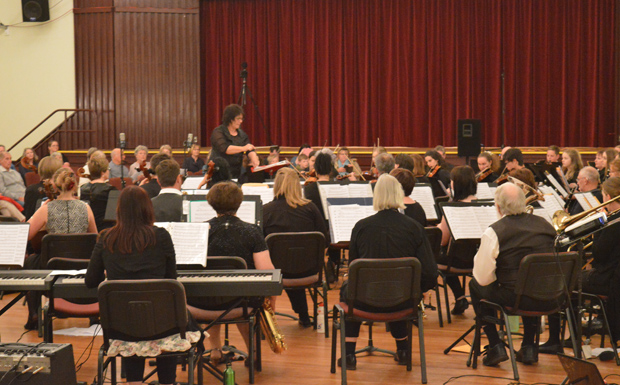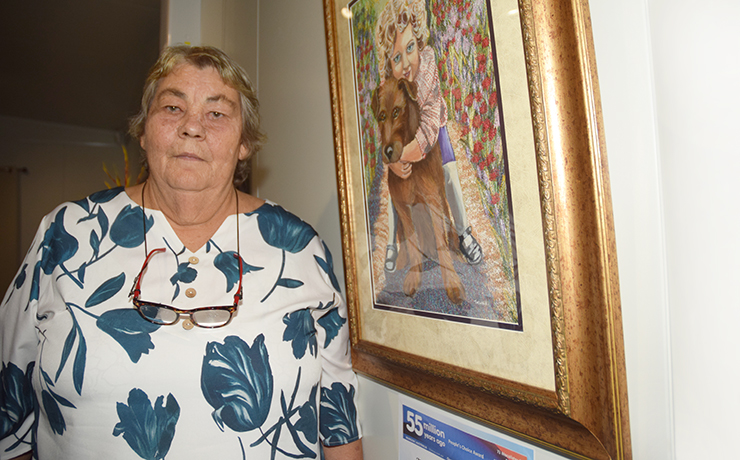
April 20, 2017
The South Burnett Regional Council is overhauling its grants programs, introducing a new system on July 1 that will change the way not-for-profit community groups can apply for assistance.
At the Council’s April general meeting on Wednesday, Councillors voted to adopt a new Community Grants Program Policy unanimously.
They were told all the Council’s policies are periodically reviewed to ensure they still achieve what they were intended to do, and the current community grants policy had not been reviewed for the past “six to eight years”.
The new policy covers 11 grant, donation and sponsorship programs Council currently runs:
- Community Event Sponsorship
- Community Regionally Significant Events Sponsorship
- Project/Program One-Off Sponsorship
- Community Hall Public Liability Insurance Grant
- Elite Performance Youth Grant
- In-kind Sponsorship
- Healthy Communities Sponsorship
- Councillor Discretionary Fund
- Regional Arts Development Fund
- Mayor’s Community Benefit Fund
- Subsidised Hire of Council Facilities
The policy does not cover concessions and waivers for building and development applications, undetected water leaks, the provision of recycled water, lease payment fees and rates and utilities charges, where not-for-profit community groups can also obtain significant concessions.
Mayor Keith Campbell told southburnett.com.au the intent of the new policy was to ensure ratepayers got value for money from the Council’s grant programs, but at the same time help support volunteers and the contributions they make to the region’s communities.
A secondary aim was to simplify the Council’s different grant programs by bringing them “all under one roof”.
The Mayor said while the new policy had been adopted without amendment, further refinements were possible if flaws were discovered once it comes into operation.
* * *
New SBRC Grants Policy: The Highlights
From July 1, the South Burnett Regional Council’s new grants policy will require volunteer groups to apply for funding annually in a competitive environment where all applications will be assessed on merit.
Funding will not be guaranteed.
Not-for-profit organisations which operate gaming machines, sell liquor, identify as a political party or who are affiliated with the State or Federal Government will be ineligible to apply, excluding funding for school awards.
* * *
The new system will allow Council to scale back the total amount of assistance it gives to the region’s community groups.
Rather than allocating a fixed amount to grants, donations and sponsorships each year – as has been the case until now – the new system will allow the Council to set a maximum amount in each year’s Budget that it is prepared to pass on to community groups.
The region’s not-for-profit groups will then compete for this pool of funding under the merit-based system that Council plans to introduce.
Council will be under no obligation to spend all of each year’s pool if it receives insufficient applications that meet its guidelines.
* * *
All applicants for grants will be required to demonstrate they have the ability to deliver the program, event or initiative they’re seeking funding for.
They will also need to show there is a demonstrated community need for their project, community support for it and involvement in it.
In addition, they will be required to provide evidence of their own eligibility and viability, along with evidence of anticipated positive outcomes that will be of long-term benefit to the South Burnett.
RADF applicants will be required to meet additional RADF funding guidelines, too.
* * *
The new Community Grants Policy is expected to affect a number of major annual regional events the Council has lent its support to over recent years.
Under the new guidelines, “Regionally Significant Events” will only be eligible for funding support for three years – $10,000 the first year, $7500 the second and $5000 the third.
Event organisers will be required to submit a three-year business plan to gain access to the grant program.
If they receive a cash grant, they will not be entitled to any in-kind support from Council.
This would mean they would have to pay for services such as waste collection, mowing and grading out of their own pockets.
- Editorial: Community Grants Policy Needs A Rethink























